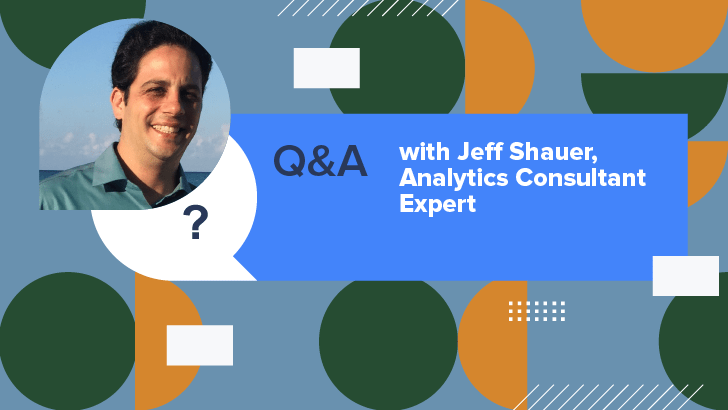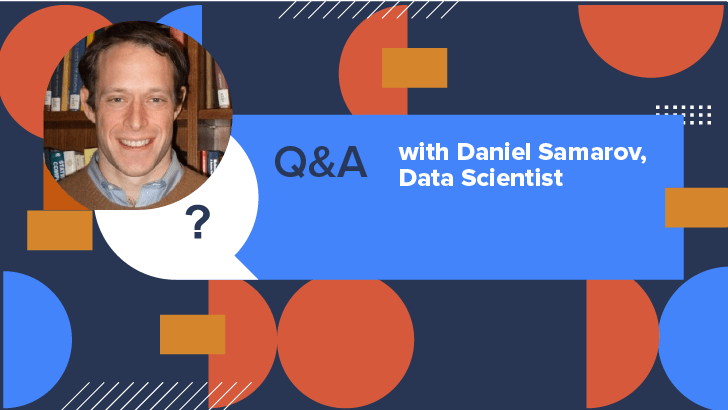1) Tell us about yourself?
Like many in the data science profession, I began my career as a physicist. After earning my doctorate at the University of Wisconsin and completing a postdoc at Argonne National Laboratory, I went to work in the private sector at a professor’s data science consulting company. I have been working as a Data Scientist for the past nine years.
2) What got you interested in data science? How do you see this field evolving?
I became interested in a long-term career as a Data Scientist while working as a Data Science Consultant because of the diversity of problems I encountered, and the excitement of solving problems with real-world applications such as fraud detection, image processing, natural language processing, etc.
As companies become more familiar with what data science can and cannot do for their business, there is a growing awareness that in order to derive ROI from data science, software and business processes need to integrate the results of analytics efforts. Data Scientists are being called on to become better software developers, and the C-Suite is being called on to understand that no benefit can be gained from data science departments if there isn’t a willingness to fundamentally alter business processes.
3) How did you first hear about Experfy?
I first learned about Experfy from LinkedIn. I applied to an Experfy job posting and began a conversation with an Experfy Manager about becoming an Experfy Consultant.
4) What initial challenges did you encounter before joining Experfy?
One challenge I’ve faced throughout my career as a Data Scientist is working for companies lacking awareness of where they are on the analytics maturity path. A good data science team must be well integrated to reap the benefits of building tools and reshaping business processes through the analysis of data, processes, and tools. If there isn’t a holistic alignment of data, human resources, computational tools, and high-level stakeholder strategy, the practice of data science at that company can become frustrating and ultimately not beneficial to the company.
Experfy solves this by being a resource for short-term projects. It also provides access to a vast array of skilled data science practitioners who can help a company figure out what opportunities exist in their data and whether they would benefit from making a longer-term investment to a data science group.
5) Can you highlight instances where Experfy has proven to be valuable?
I am currently working on a project with a team at Deloitte through the Deloitte Talent Cloud.
6) As you see it, what makes Experfy unique?
The relationship with Deloitte and other Fortune 500 Companies makes Experfy unique. Access to well-vetted freelance professionals exists in the software world, but I’m not aware of anything like Experfy and its Talent Cloud model for the data science professional.
7) Tell us about your experience during the screening process with Experfy?
It was a rigorous process, which it should be, and took around two months. I talked with a recruiter, then worked through case studies with an Experfy Analyst, then an Experfy Technical Manager, and finally a Deloitte manager.
8) Tell us about a project that had a huge impact on the ROI of a customer?
I’m currently working on a project through Deloitte Open Talent that involves implementing changes to industrial planning/design software. The software optimizes factory processes, which will result in large cost-savings.
9) How is your experience working as a part of Deloitte’s Talent Cloud? What are a few key benefits of being a member of a Talent Cloud?
My experience being part of Deloitte’s Talent Cloud has been good so far. The best part is having access to many interesting projects.
10) Any tips for students who are pursuing a career in data science?
Become a good problem-solver, first and foremost. Learn to code, and learn statistics.
11) What are your plans for the future?
I’m looking forward to what this exciting career path has in store for me!




